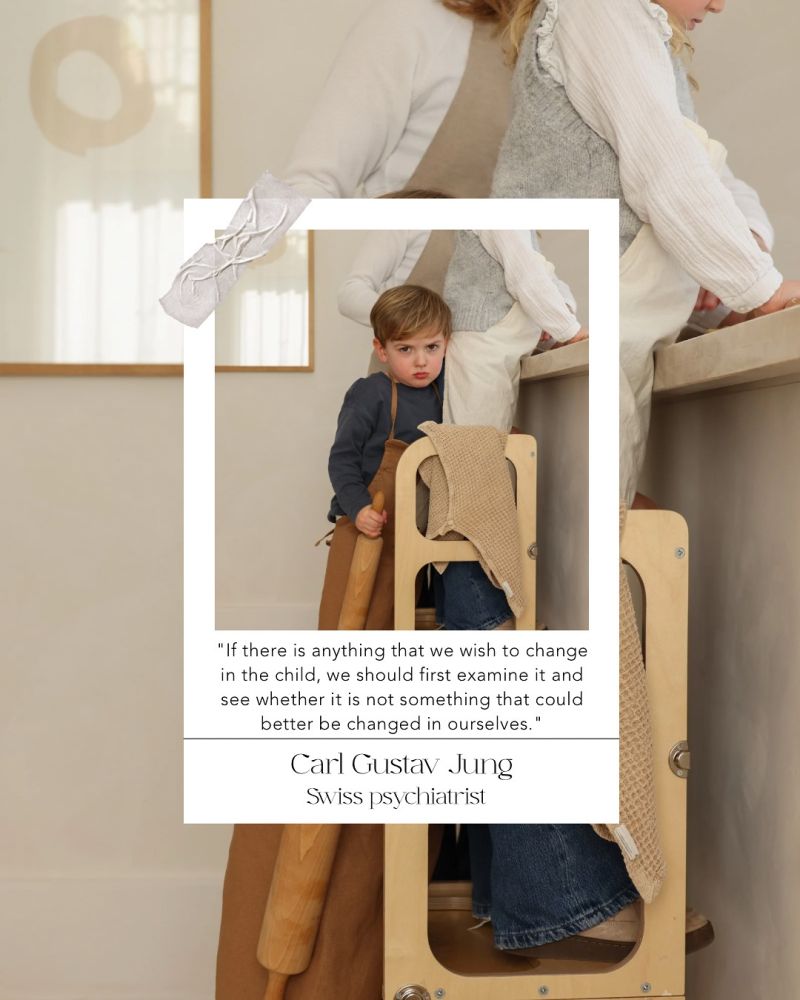Before you fix the behavior, look at the reflection
A child who is “too much.”
A child who keeps pushing boundaries.
A child terrified of making mistakes.
A child who’s either painfully shy or explosively angry.
Before you rush in to manage, correct, or “fix” the behavior… pause. Take a breath. And ask:
What is this behavior showing me about myself?
What part of me is being touched, stirred, or triggered?
There’s a reason I keep this quote by Carl Jung close to heart: “Everything that irritates us about others can lead us to an understanding of ourselves.”

Your child’s behavior is not just theirs. It’s relational.
Whether you’re a parent, caregiver, or simply a human in relationship, this truth holds: Children are shaped by their environment. And we are that environment. They absorb:
- Our emotional regulation
- Our stress
- Our unspoken fears
- Our nervous system states
- Our tone, pacing, and relational presence
In aware parenting therapy, CBT and somatic parenting work, we learn to trace these moments back not just to our children, but to the child inside us. The one who may have learned to shut down. Or perform. Or please. Or explode.
When you shift, the system shifts
In trauma-informed family therapy, we look at what lives underneath the behavior. Not just in the child, but in the caregiver. Because often:
- The “strong-willed” child activates your forgotten vulnerability
- The “clingy” child touches the part of you that never felt safe
- The “loud” child mirrors your own suppressed expression
And when you meet that with awareness –not shame – everything begins to shift.
Want to explore this more deeply?
I’ve created a simple, reflective tool that many clients love: “From Trigger to Insight” – a short practice to help you pause and reflect. Just send me the word “Jung” and I’ll send it to you, no strings attached. It’s a small step toward a more conscious connection with your child and yourself.
Marina van Dansik – Parent Coach and Therapist Haarlem
Offering CBT, Gestalt therapy, Inner child therapy, somatic therapy, and trauma-informed guidance for conscious parents and caregivers.